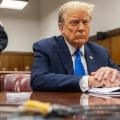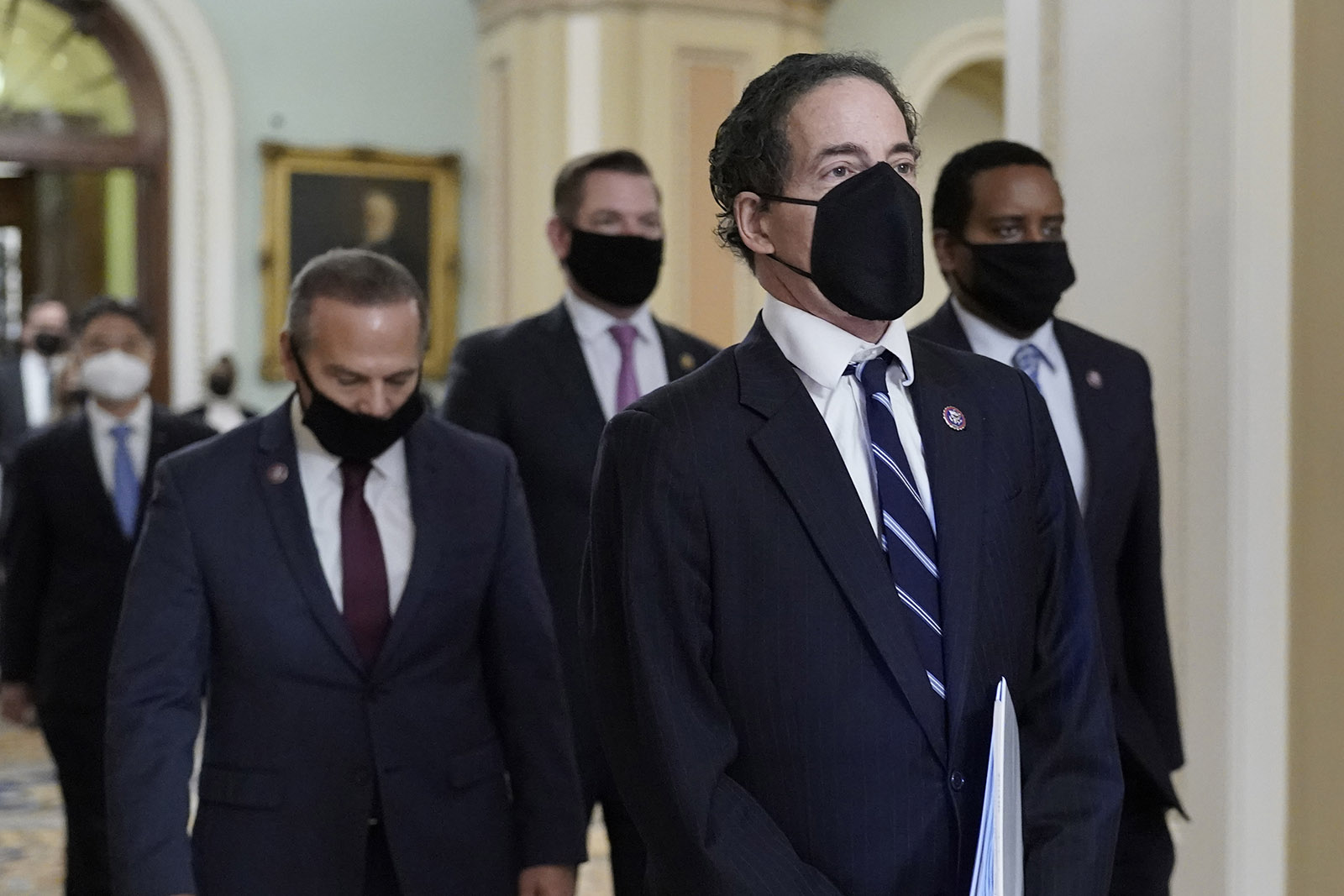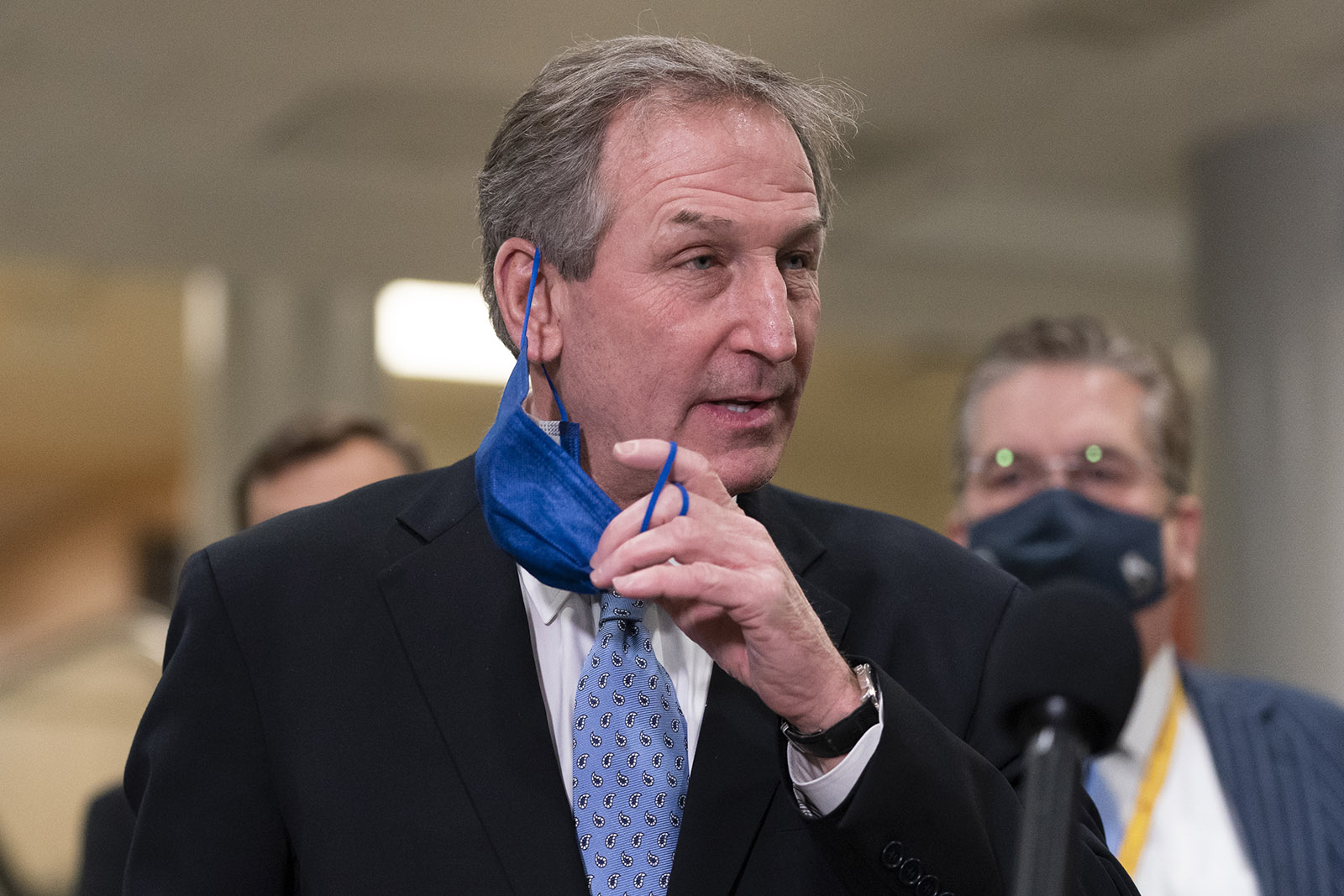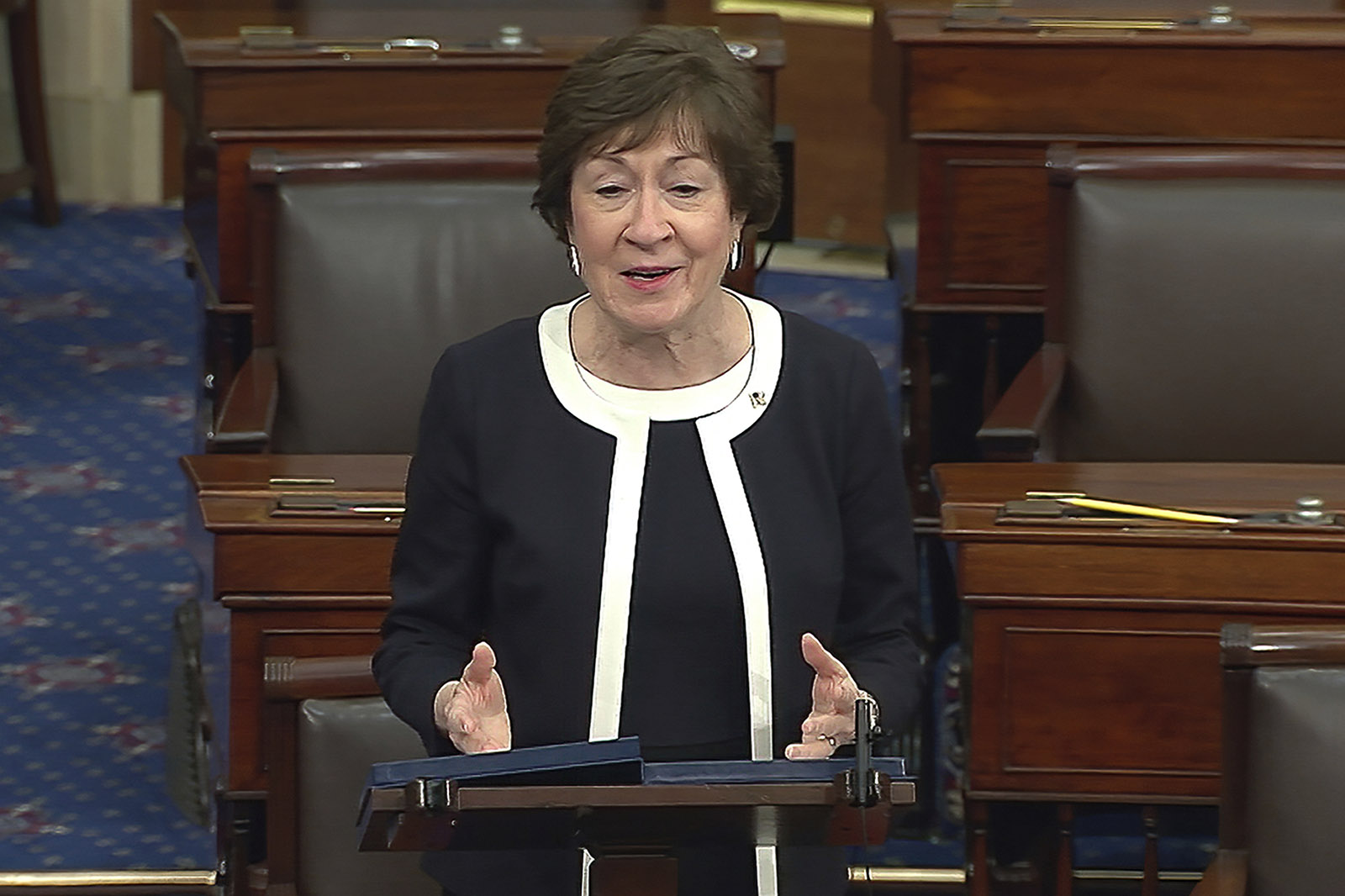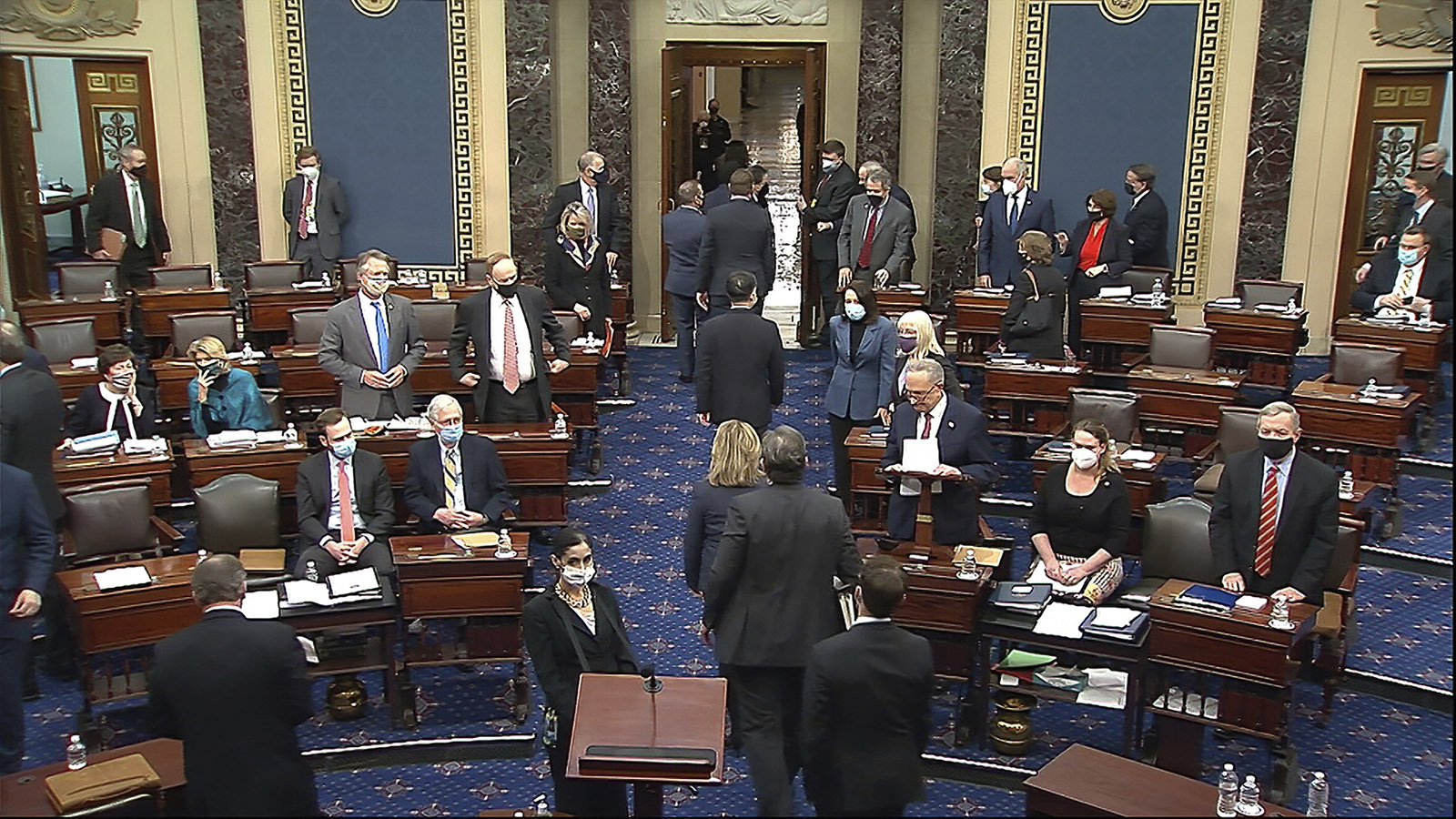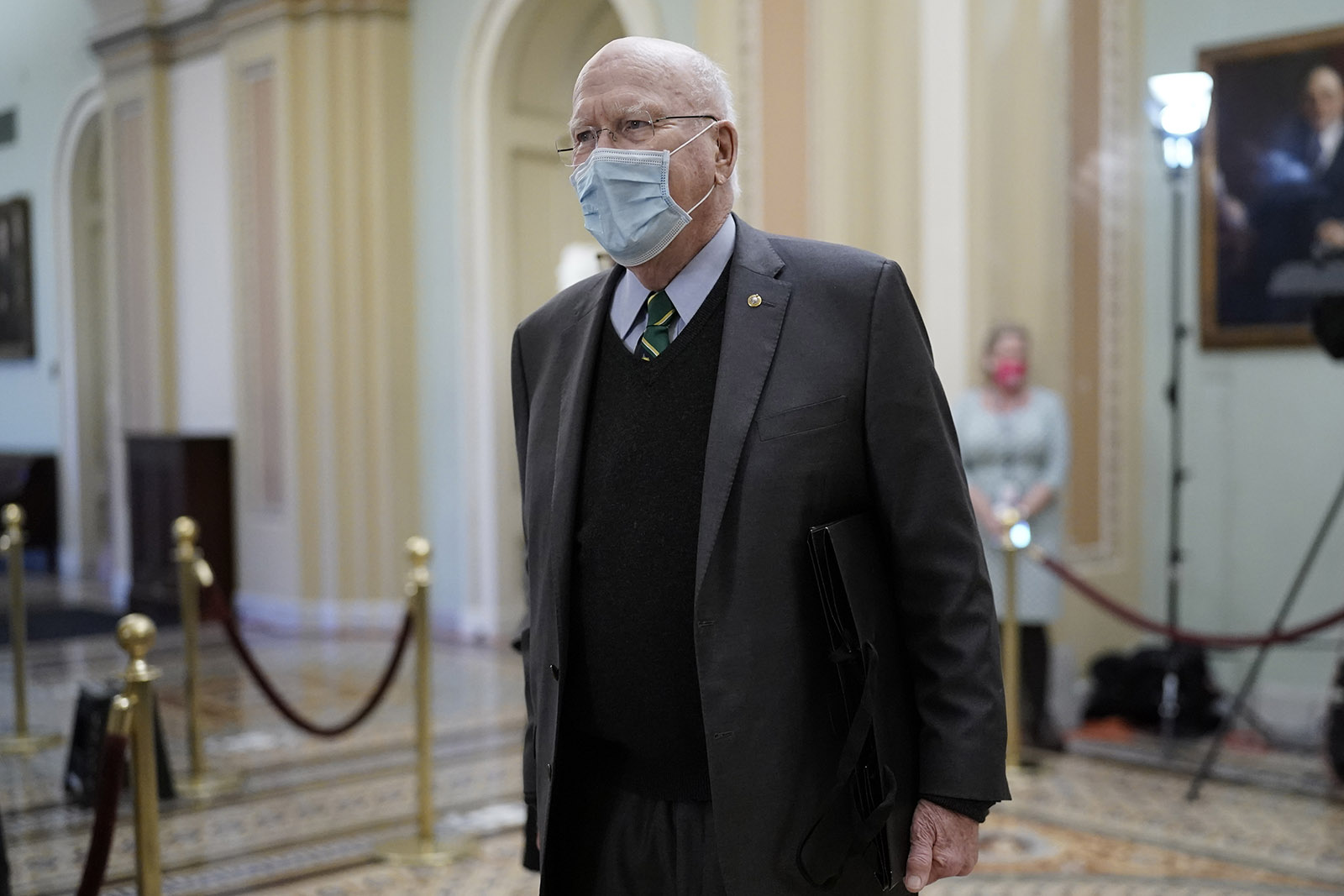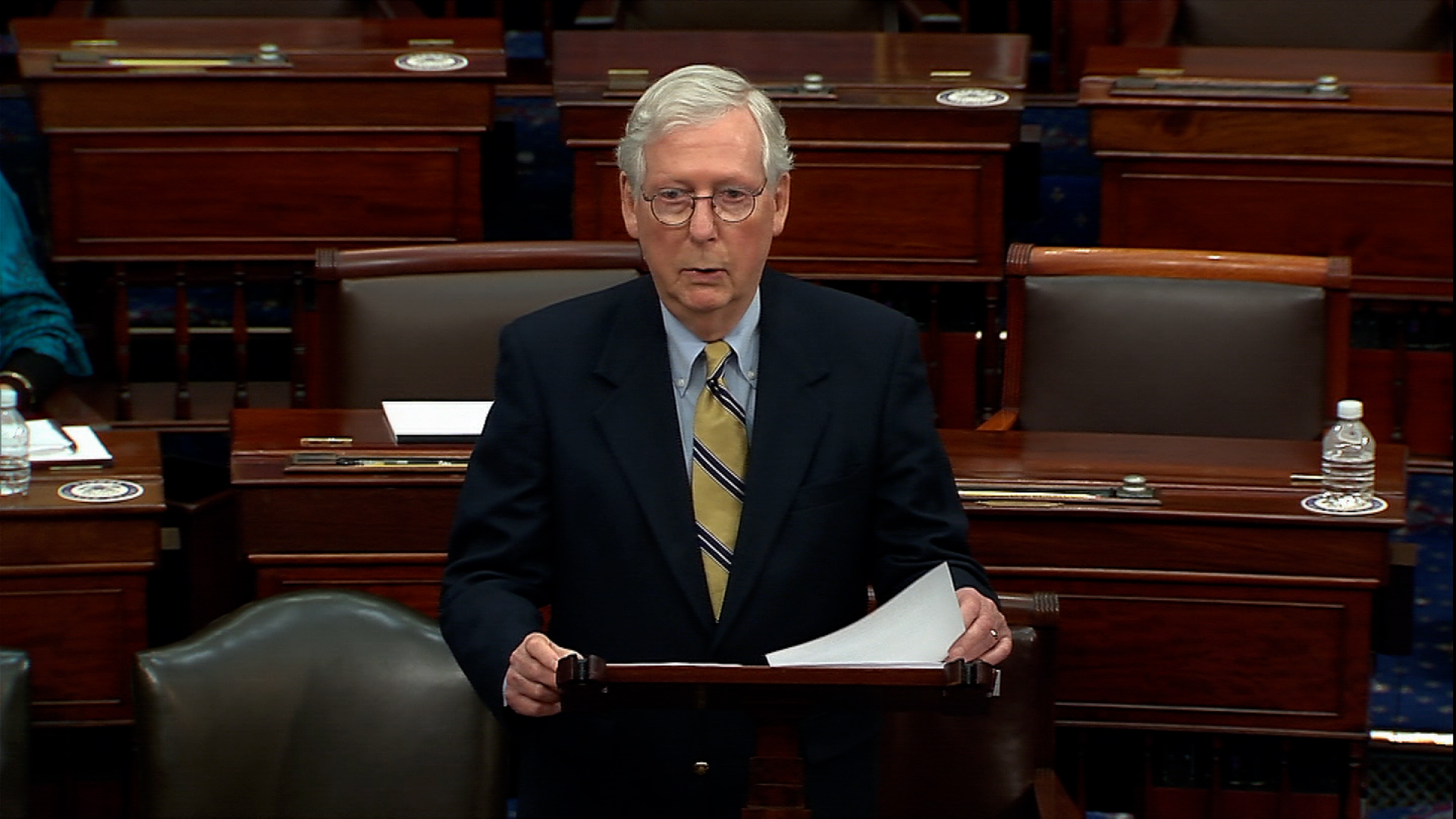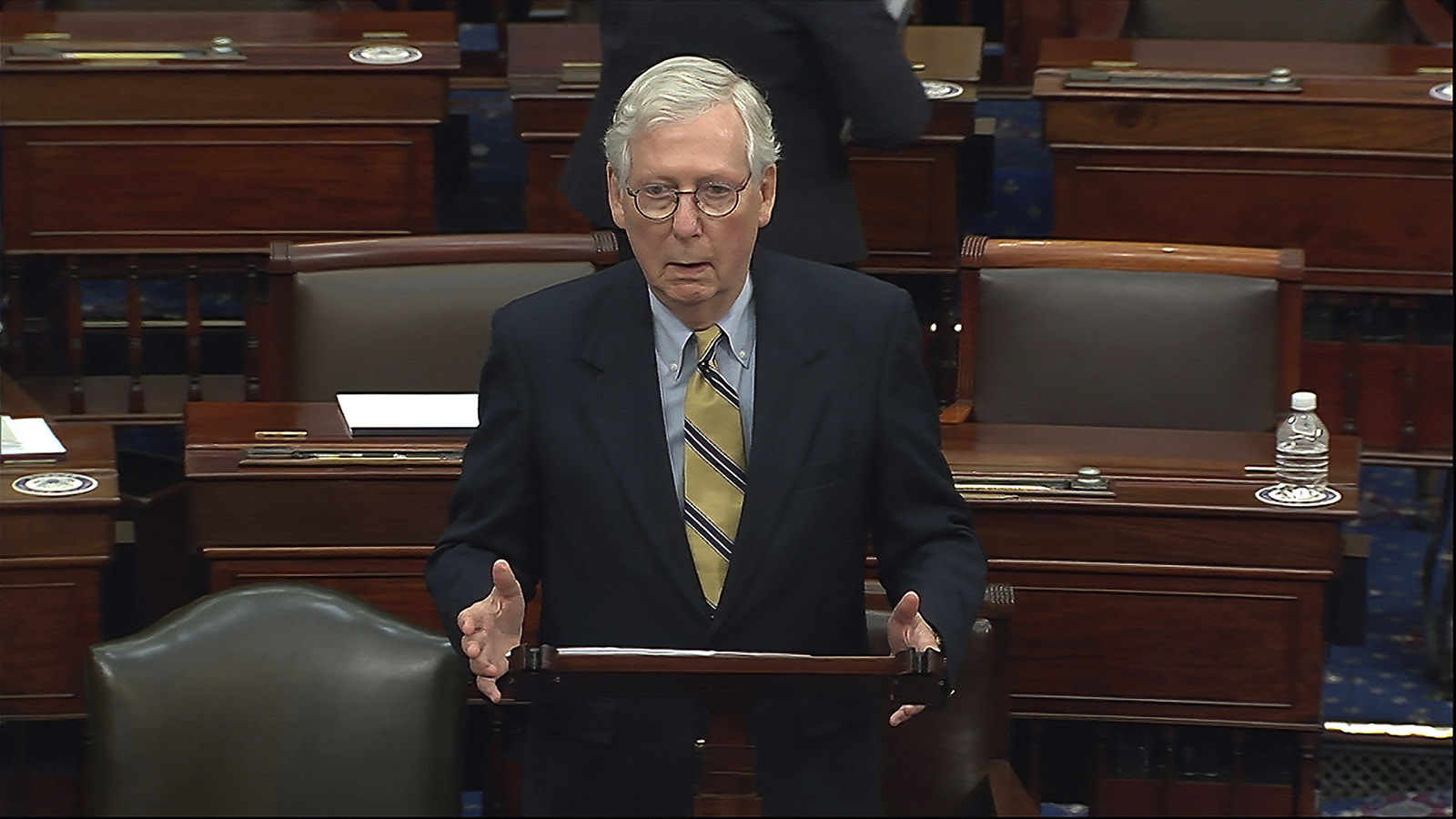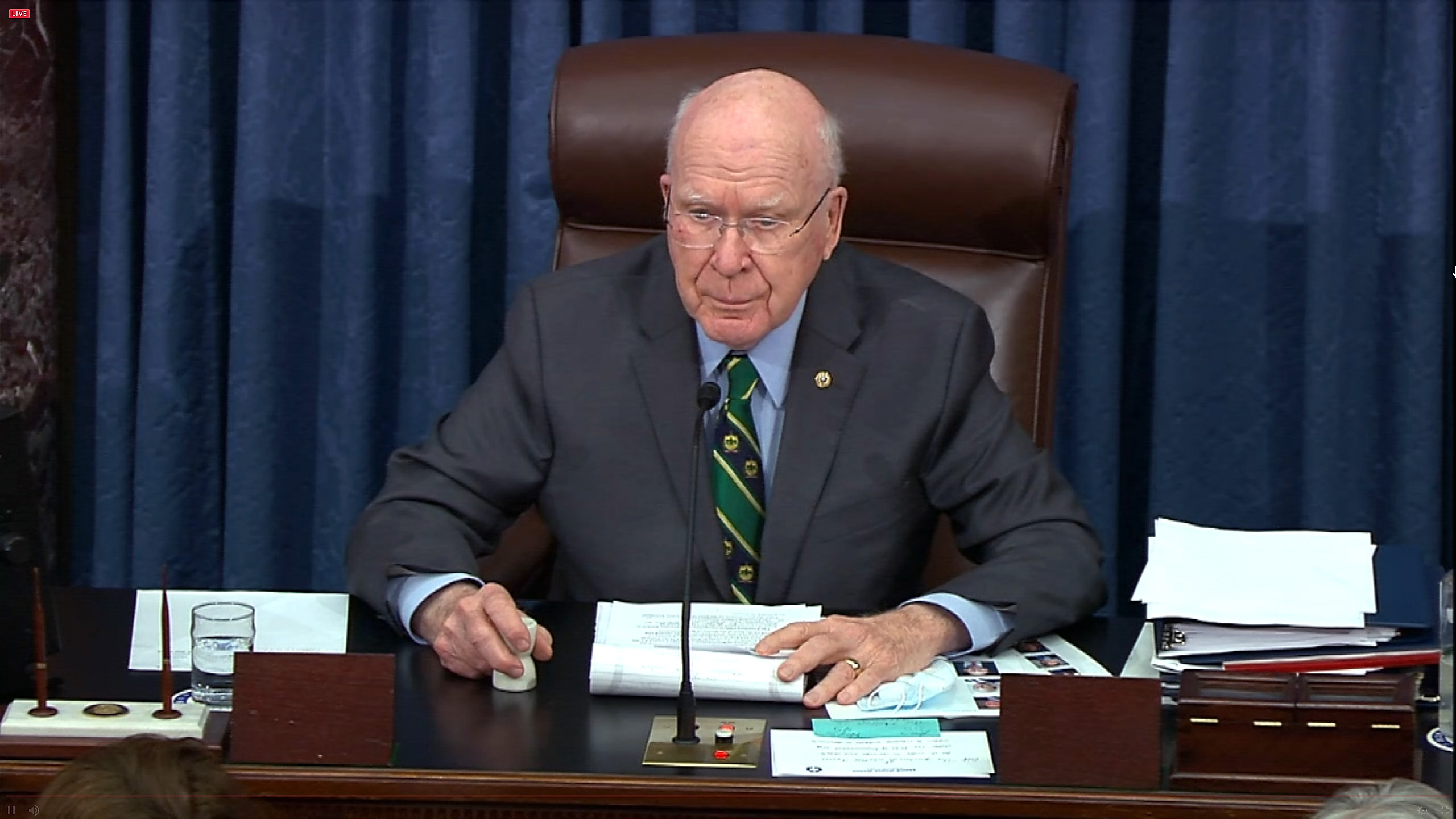
The Senate voted 57-43 today to acquit former President Trump of inciting an insurrection at the Capitol on Jan, 6.
Trump's second impeachment trial lasted five days with both House managers and defense lawyers presenting evidence and arguments to support their positions.
Our live coverage of the trial has ended, but in case you missed it, here's what you need to know about today's proceedings:
- Trump acquitted: The vote to convict was 57 to 43, 10 short of the necessary threshold. It came after a long day of arguments over whether to allow witnesses at the trial and following closing arguments from both sides. Seven Republicans — Richard Burr, Bill Cassidy, Susan Collins, Lisa Murkowski, Mitt Romney, Ben Sasse and Pat Toomey — voted to convict.
- House managers asked for witnesses: At the start of today's trial, House lead impeachment manager Rep. Jamie Raskin announced that the managers were seeking to subpoena Rep. Jaime Herrera Beutler, a House Republican who first revealed a conversation between House Republican leader Kevin McCarthy and Trump in which the former President said the rioters cared more about the election results than McCarthy did. After Raskin announced Democrats would seek witnesses, Trump's lawyer Michael van der Veen responded that if Democrats were going to ask for witnesses, Trump's team was going to need 100 depositions.
- A bipartisan Senate vote on witnesses: The vote was 55 to 45, with five Republicans joining Democrats in voting to allow witnesses. GOP Sen. Lindsey Graham initially voted no, but changed his vote to yes, meaning he changed his vote to allow witnesses.
- Confusion and a break: Following the vote, there appeared to be some confusion on the Senate floor about the move, with one senator even asking what exactly they just voted on. Bipartisan groups of senators huddled, and the timeline of the trial seemed murky. Then the Senate went into a recess.
- The evidence deal: Returning from the break, Senate leaders, the House managers and Trump’s legal team announced they had agreed to insert the statement of Rep. Herrera Beutler from a CNN report into the trial record, rather than taking a deposition.
- Closing arguments: The House impeachment managers and Trump's team then moved on to their closing arguments, signaling the trial would end without witnesses.
